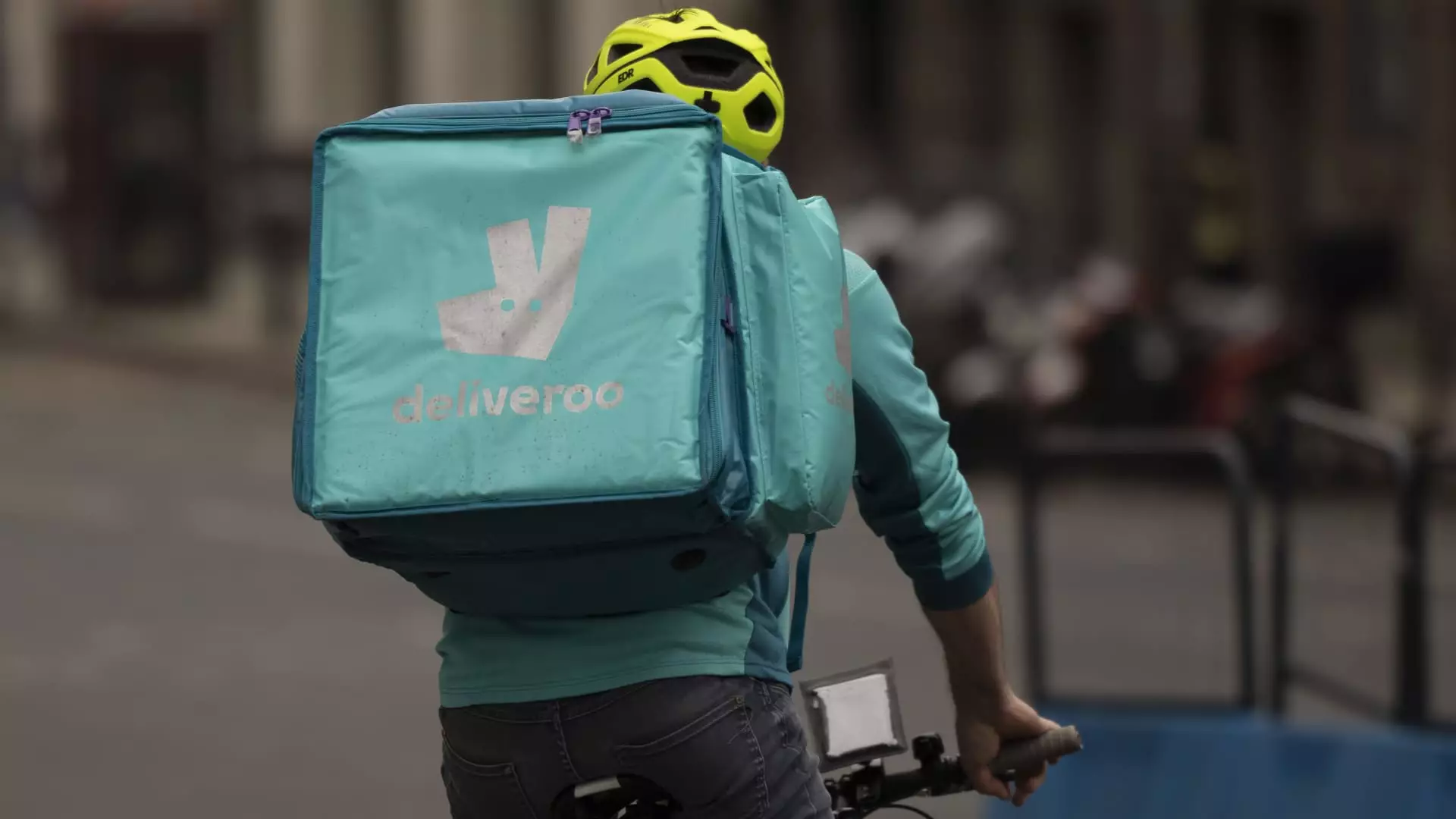The acquisition of British food delivery giant Deliveroo by American competitor DoorDash for an impressive £2.9 billion is not just a financial transaction—it marks a pivotal moment in how we perceive the tech startup landscape. Once heralded as a promising British innovation, Deliveroo’s fortunes have faded dramatically since its ostentatious IPO in 2021. After a meteoric rise during the pandemic, the inevitable dip has illustrated the volatility of tech investments and the challenges of sustaining growth in a post-Covid world. Evidently, the glitz and glamour of tech valuations are underpinned by the harsh realities of market fluctuations and consumer habits that can shift unpredictably.
Deliveroo’s shares were initially eye-catching, with a debut price of £3.90 that soon plummeted by over 50%. Investors were left bewildered while Deliveroo’s management scrambled for credibility during a time when delivery apps were gaining traction as essential services. The illusion of a tech darling began to dissolve, questioned by an increasingly skeptical market weary of overhyped growth stories.
The Unfolding Drama of Competition and Regulation
In the throes of this decline, Deliveroo found itself besieged by formidable competitors and mounting regulatory scrutiny. The gig economy model, once celebrated, faced growing backlash as cities and nations examined labor laws and worker rights. This scrutiny raised concerns not only for Deliveroo but also for the entire sector. The existential crisis was palpable; could a once-celebrated business model remain viable in a world where corporate accountability is no longer just a buzzword?
DoorDash’s acquisition offer at a whopping 180 pence per share reflects both an opportunistic approach and a calculated move to consolidate power in an increasingly crowded market. As the company has observed its rivals struggle, including firms like Just Eat who have also fallen victim to harsh market conditions, DoorDash could be poised to capitalize on Deliveroo’s remnants. The excitement expressed by DoorDash CEO Tony Xu about what their partnership could achieve speaks to a relentless ambition that many find intoxicating but often overlooks the complexities involved.
The Illusions of Scale: DoorDash’s Intriguing Strategy
DoorDash’s aspirations stretch well beyond the shores of America; the acquisition of Deliveroo aligns with its strategy for international expansion. With their recent purchase of Finnish food delivery app Wolt, DoorDash’s ambitions also mirror a trend within the food delivery sector: consolidation is necessary for survival amidst ever-looming competition.
However, ambition can sometimes breed hubris. Although DoorDash is positioning itself as a global titan, the blunders of its predecessors serve as a cautionary tale. Businesses that pursue rapid scaling without addressing foundational issues—like labor laws, consumer satisfaction, and sustainability—risk walking the same tightrope that led many others to their demise. As much as one admires the bold moves in expansion, there lies a risk of overextending oneself.
Critical Reflection: Will This End Well?
What makes this acquisition noteworthy isn’t just its staggering financial figures but the implications it holds for stakeholders across the board, from shareholders to gig workers. Can DoorDash truly create a better service that benefits local businesses and workers alike, as suggested by Xu? Critics would argue that embracing the complex demands of human resources while pushing for growth is a precarious balancing act.
While the £2.9 billion payoff suggests stability for DoorDash, it ultimately provokes deeper questions about the nature of tech acquisitions in a world replete with uncertainty. The growing pains of Deliveroo remind us that resilience isn’t merely about scale; it’s about understanding the human aspects intertwined with technology. As these narratives unfold, it becomes apparent that the deliveries of the future may come with significant baggage—much like the very meals they hope to deliver.

